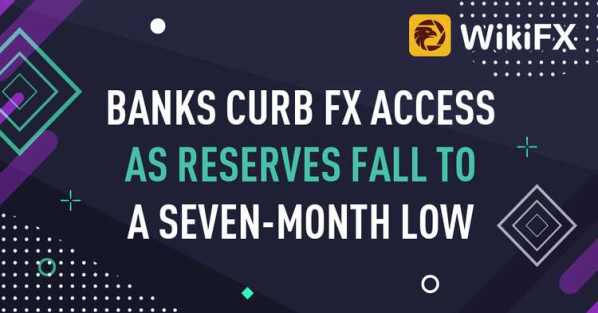
The country's external reserves fell to $38.57 in billion as of May 25, 2022, a seven-month low, according to information acquired from the Central Bank of Nigeria.
According to results, as scarcity bites deeper, the country's external reserves necessary to safeguard the naira's value are pushing banks to restrict access to foreign currency to visitors and other authorized users.
According to CBN estimates on foreign reserve movement, the reserves, which had been oscillating for weeks, reached their lowest levels of $39.01 billion and $38.39 billion on October 10 and 8, 2021, respectively.
Many banks are lengthening the waiting period to acquire currency for international travels due to shortage, denying travelers with urgent journeys access to apply for Personal Travel Allowance or Business Travel Allowance requests.
Banks have also reduced the dollar limit that customer may spend on their credit cards.
Ecobank Nigeria outlined its current stance on retail foreign currency transactions for international school tuition, housing and maintenance payments, and PTA/BTA requests on Sunday.
Korede Demola-Adeniyi, the leader of Consumer Banking, stated, Due to current market patterns, 30-day window is needed to allow requests for school expenses.
“Applications to be filed with the requisite documentation in order to maintain seamless service and facilitate PTA/BTA settlement within the schedule,” the statement said.
In an email to clients, Access Bank also stated its position on currency needs for foreign school tuition, maintenance payments, and PTA/BTA requests.
“All requests are been checked to ensure they fulfill regulatory criteria,” according to the statement. Furthermore, due to the CBN restricted currency availability, we demand a 30-day turnaround time to complete school fee, maintenance, and rent payment requests.
However, for PTA/BTA, we recommend that you submit your application 14 days before your estimated trip date to ensure that your payments are received on time.
Imports of consumer goods increased by 109.25 percent due to a currency shortage.
The pharmaceutical industry's main difficulty is a lack of access to foreign currency, according to Azoji.
First Bank had already alerted its consumers of the reduction in dollar access in an email titled “Reduction of naira card cross border rate to $20.” We've increased cross-border transaction limitations for the Naira Mastercard, Naira Credit Card, our Virtual card, and Visa Prepaid Naira card to $20 monthly due to current FX realities.“ This will become effective on April 1, 2022. International ATM withdrawals with our Naira cards will also be forbidden for the time being.”
The CBN Governor, Godwin Emefiele, stated at the recent Monetary Policy Committee meeting those total foreign reserves had dropped considerably from $39.28 billion at the end of March 2022.
“This was related to the slow addition of reserves from exports and the high cost of importing refined petroleum products,” he explained.
Dr Sam Nzekwe, a former President of the Association of National Accountants of Nigeria, stated that politicians were raking in cash for their campaigns.
“Politicians' activities are one of the reasons why there is no FX,” he remarked.
“You will notice that the dollar will fall after all of the primaries.” Banks do not have enough dollars to provide to real importers. Furthermore, currency speculative actions are counterproductive. Nigeria must become more productive in order to generate more foreign currency.
External and internal volatility, he claims, have an impact on the FX.

Leave a Reply